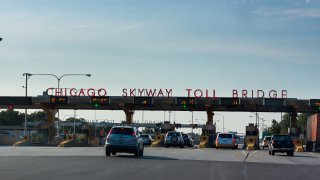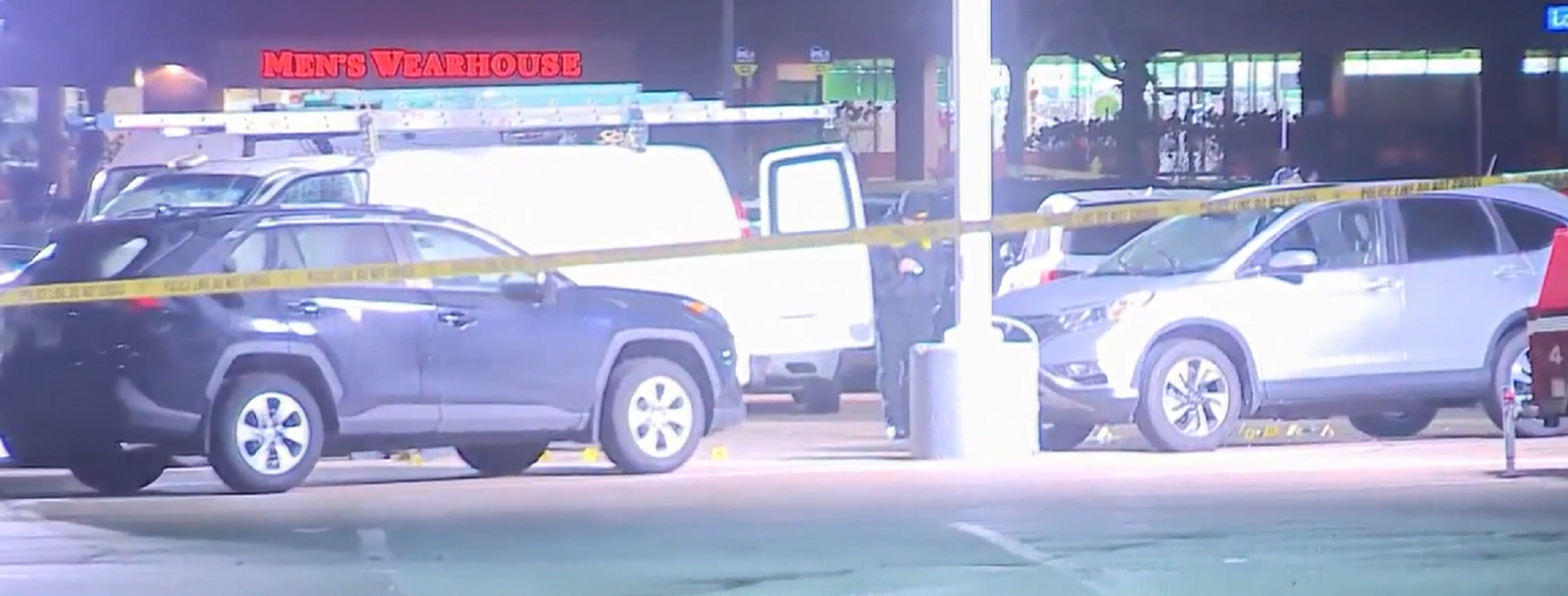
Wilmette contractor Rocky Rowe has used the Chicago Skyway for 20 years — at least 150 times over the past two years — on the way to visit family in Michigan and watch his son play hockey for Western Michigan University.
He couldn’t help but notice the tolls “going up and up,” but he was willing to pay the price — now $7.20 per passenger vehicle — to avoid sitting in traffic for an extra hour each way.
Now, Rowe’s complaints to an attorney friend about those sky-high Skyway tolls have culminated in Rowe being the only named plaintiff in a lawsuit seeking class-action status. It was filed Tuesday in Cook County Circuit Court.
That lawsuit accuses the company operating the Chicago Skyway of overcharging users by anywhere from 10 cents to $1.20 per trip, depending on the size of the vehicle. Overcharges allegedly totaled an estimated $3 million over the five-year period ending in March.
“It’s nickels and dimes to some people. But if I was overcharged a couple hundred bucks over the course of the last two years, multiply that out by how many millions of people are using that Skyway. It’s significant,” Rowe said Thursday.
“The average person like myself — we had no idea. You just go through and you pay it. You’re just angry about how much you’re paying. To find out that you’re being charged more than you legally should have been or per the agreement, it just seems like you’re hitting the average guy even harder.”
Referring to the 99-year, $1.8 billion deal that privatized the Skyway, Rowe said, “It was incredibly shortsighted. I don’t think anybody would argue that it was a ridiculous deal to do in the first place. And then, to find out at the back end that they’re already taking so much and, on top of that, overcharging people — that’s over and above.”
Local
The Skyway was sold in 2022 for the second time in seven years. The $2 billion sale of of a two-thirds stake owned by Canadian pension plans to Atlas Arteria Ltd., an Australian toll road company, generated $25 million in transaction fees for the city. The Ontario Teachers’ Pension Plan retained ownership of the remaining one-third stake.
A spokesperson for Skyway Concession LLC, which operates the Skyway, said it had not yet been served with the lawsuit. Also named as defendants are Atlas Arteria, the Ontario Teachers’ Pension Plan and Calumet Concession Partners Inc., which owns Skyway Concession.
Feeling out of the loop? We'll catch you up on the Chicago news you need to know. Sign up for the weekly Chicago Catch-Up newsletter.
Attorney Ken Goldstein of Krislov & Associates began investigating Skyway tolls after Rowe started complaining about it.
The late founder of Goldstein’s firm, Clint Krislov, had spent years crusading against the privatization frenzy that started with the Skyway and continued with the sale of Chicago’s parking meters and downtown parking garages. Krislov died earlier this year after a 23-year battle against four types of cancer.
“When they announced the [latest] increase last November, Clint was very sick,” Goldstein said. “He asked us to check the contract. We did and it looked wrong. We couldn’t figure out why. We kept looking. We kept checking our math and checking” the gross domestic product on which the annual increase is supposed to be based.
“They can use the highest GDP over the course of a year and they used a number that’s not listed in the government’s GDP schedule. They used a higher number.”
Former Mayor Richard M. Daley directed the original sale of the Skyway in what came to be known around City Hall as the Great Chicago Sell-Off.
The Skyway deal allowed operators to regularly increase tolls. The rate for cars on the shortcut from Chicago to Indiana is now $7.20, while rates are much higher for vehicles with more than two axles. Drivers of cars paid $2 in 2004.
Thanks to higher traffic and an increase in tolls, the privatized Chicago Skyway generated $120 million in revenue in 2022, the year of the most recent sale, up from $114.3 million the year before, the Skyway’s 2022 audit showed. That’s well over the $92 million in annual Skyway revenues in 2019.
Rowe isn’t holding his breath for a refund. He just hopes the lawsuit’s request for monitoring of future increases that do not require city approval is successful.
“I have a son who’s in college in Michigan. He’s a college athlete, so we do a lot of back-and-forth to go to his games. We have family in Michigan. We’re on that corridor pretty regularly. I’ll be on it Saturday morning,” Rowe said.
“You put a price tag on the value of your time, the cost you’re putting out and the way traffic is. Going around the other route can add an hour to your trip, and so you’re kind of stuck. You’ve got a stuck group using it and the rates kept going up and up.”



